- Home
- Stephanie Laurens
It Happened One Night Page 14
It Happened One Night Read online
Page 14
He stepped into the room and looked around. He had brought a change of clothes with him for evenings with his grandmother, but it had struck him on the way upstairs that they would be badly creased.
Not so.
He saw his shoes first when he glanced toward his bag. They were side by side on the floor, and if he was not mistaken, they had just been freshly polished.
“I hope I did not leave any smudges,” she said, still looking at him through the mirror. “I have had no training as a gentleman’s valet.”
“Good God, Nora,” he said irritably, “you did not polish them yourself, did you?”
“Since it did not seem likely that you would risk allowing me to shave you,” she said, “I had to think of another way to earn my keep.”
It might have been a joke, but her tone of voice said that it was not.
He sat down on the side of the bed to pull off his boots one at a time. His shaving things were set out neatly on the washstand, as they had been earlier. It looked as if some steam was rising from the water pitcher. His evening shirt was hanging on the knob of one wardrobe door, his evening coat on the other. Both looked freshly ironed. So did his spare neck cloths, which were draped over the edge of the washstand.
“Did you do all this yourself?” he asked, remembering with an inner grimace how he had told her earlier that she could be his servant if she did not choose to be his wife.
“Yes,” she said.
“It looks,” he said, “as if you would make someone a good wife.”
The words did not come out sounding like a compliment.
“Oh no, thank you,” she said, and she leaned forward and continued with the task of pinning up her hair. “Why would I subject myself to that sort of servitude?”
He did not attempt an answer. He shrugged out of his coat, removed his neck cloth, hesitated a moment, and then pulled his shirt off over his head. If she did not like being in a room with a half-naked man, then she might leave. He crossed to the washstand, poured some of the water into the bowl—it really was hot—and proceeded to shave.
She finished what she was doing at the mirror, knelt by her valise, and busied herself with tidying its contents. He half watched her through the small mirror above the washstand.
Her hair looked prettier than it had earlier. It was still smoothly brushed back from her forehead and ears, but the knot was higher on her head, emphasizing the length of her neck and the perfection of her profile. She did not need curls or ringlets, both of which she had had in abundance as a girl.
He rinsed off his razor and gave himself a quick wash from the waist up. He washed out his hair and toweled himself dry before reaching for the newly ironed shirt.
“How did they manage to persuade you,” he asked her, “that we were not married?”
The question clearly took her by surprise. She looked up from her valise, her eyes coming to rest on his still-bare chest for a moment before looking up into his.
“The man who married us was not a clergyman,” she said. “I was not of age. We had not—” She stopped abruptly, and her head dipped to the valise again.
“Consummated the marriage?” he said. “That would have made no difference. It is not a prerequisite for a valid marriage. Did they persuade you it was? And did you tell them we had not yet slept together? Did they ask you?”
“Did they ask you?” She flung the question back at him, looking up at him again, defiance in her eyes and the tightness of her jaw.
“They did,” he said.
“And—?”
“I told them it was none of their business what I did with my own wife in the privacy of our own bedchamber,” he told her.
“But you must have agreed with them,” she said, “that we were not really married.”
“Must I?” He tucked his shirt in at the waist, as her eyes followed his movements.
“You made no effort to stop me from leaving the inn with them,” she said. “You did not come near the room while I was packing my things. And you did not come after me.”
It struck him suddenly that perhaps she did not know. Indeed, it was very probable that she did not, though he had never considered the possibility until now.
“That would have been somewhat difficult to do,” he said. “It was two days before I was fit to travel. By that time you were long gone.”
She looked steadily at him as she closed her valise.
“Before you were fit?” she said. “What do you mean?”
“I had dared to run off with their little girl,” he said. “I, a mere secretary. I had run off with their last remaining hope of avoiding financial ruin. I had married her, moreover. What do you think I mean, Nora?”
No, she had not known. That was obvious in the widening of her eyes now and the paling of her cheeks.
“They beat you?” she said.
“Two against one were rather powerful odds against me,” he said. “Even so, they did me something of a favor, Nora. They made me realize what a sad weakling I was physically. They caused me to turn my attention to fitness. They would not have had such an easy time of it if I had been then what I am now.”
“They beat you,” she said, sitting back on her heels. “So badly that you could neither stop me from leaving nor come after me.”
She was not asking questions.
“It is what men do,” he told her, reaching for his coat, “when they are annoyed with one another.
“They did not tell me,” she said.
“I am not surprised,” he told her curtly.
Though he imagined they must have both been quite raw-knuckled. Had she not noticed? And if not, why not? How upset had she been during that journey back into England? She had not known they had given him a thorough drubbing. She must have expected him to come to their room while she was packing. She must have expected him to stand up for her against her father and brother. She must have expected him to stop them from taking her away. And when he had done none of those things, she must have expected that he would come after her at any minute.
Because he was her husband, and it was what husbands did for their wives.
How soon had hope died?
How soon had she begun to believe her father that theirs had not been a real marriage after all, that he had merely taken advantage of a young, naïve wealthy innocent? She had still believed them wealthy at that point.
She had been eighteen years old, for the love of God. How could she have held firm when she did not even know all the facts?
“Nora,” he said.
But he was interrupted by a tap on the door. She crossed the room and opened it a little way while he reached for one of the starched neck cloths.
“The carriage is here,” she said as she closed the door again. “Oh, here, let me help you with that.”
She came hurrying toward him.
“I used to do it sometimes for Papa,” she explained to him when he raised his eyebrows. “After he…Well, after he no longer had a valet.”
Because he could not afford one. Ryder had lost everything. He was fortunate indeed to have avoided debtors’ prison before his death. His son apparently had shown some backbone and had acquired employment.
She busied herself about the task while he held his chin up and felt the warmth of her fingers close to his neck and looked down into her face, frowning in concentration and very close to his own.
There was something uncomfortably domestic about this.
“I hope,” she said, “you do not favor elaborate knots. But you used not to.”
And then she darted a look up at him and bit her lip, presumably at the memory of a long-ago era.
“A secretary,” he said, “ought to have no more ambition to outshine his employer than a lady’s companion ought to have to outshine hers. But no, my tastes have not changed.”
She finished her task in silence, took a step back, and looked up at him.
Was that hurt he saw in her eyes?
“But then,”
he said, “some companions would outshine their mistresses even if they were dressed in sacks.”
Her smile set her eyes to dancing.
“I was about to stamp on your foot for your rudeness,” she said. “And you do not even have your shoes on yet.”
“Ouch,” he said, and for a moment he let his eyes laugh back into hers.
He was thankful suddenly that there was a carriage awaiting them. There was enough tension in the room to cut with a knife.
“We had better be on our way,” he said. “Are you ready?”
“I have been ready for at least the last fifteen minutes,” she told him. “I am not the one who waited until the last possible moment.”
He pursed his lips and offered his arm.
Chapter Seven
Once in a long while life offered up a moment, sometimes even a whole day, of vivid and unexpected pleasure, and Nora had learned that such offerings must be grasped and lived for all they were worth lest they be lost forever.
Today was such a day, though it had begun in disaster and quickly progressed to something that had seemed even worse. She had not wanted to be stranded in Wimbury, and she had certainly not wanted to meet Richard there.
But both had happened, and so she had experienced all the joy of participating in a May Day fair and even of dancing about a maypole. And this evening she was being presented with all the seductive illusion of being back in the world she had grown up in. She was dining with a baronet, his wife, and their wellborn guests, and soon she would be stepping outside with them to enjoy the grand finale of the day.
She had thrown caution to the winds and was deliberately, consciously enjoying herself. Tomorrow she would deal with the inevitable emotional consequences.
Everyone at the table was laughing over the garish blue beads and bracelets she was wearing and the story she had just told about them. Richard had bought them for her at the fair, she had explained, and so she wore them this evening rather than any other jewelry. She chose her words carefully so that she did not quite lie. And she smiled at him across the dining table.
It was not a lie she had told. Even if she had had a treasure chest full of costly jewels with her, she would have worn the beads tonight. They were part of the magic of the day.
“They are a gift for our tenth anniversary,” Richard said. “I was assured by the vendor that they are priceless pearls, and I do not doubt it for a moment.”
And his eyes twinkled back into hers as everyone laughed heartily at the joke.
They had indeed married in May. Almost exactly ten years ago.
Oh, Richard!
“But how very charming and romantic,” Lady Bancroft said. “What lady would not treasure such a gift forever, regardless of the truth of the vendor’s claim?”
“I will remember this when your birthday comes up next month, Adeline,” Sir Winston said to another general laugh.
Nora fingered her beads as a servant took her empty dessert plate.
And she realized suddenly that her interpretation of the events of ten years ago had been wrong in more ways than one.
Her father and Jeremy had beaten him so badly after sending her upstairs to pack that he had been unable to come up to her or to follow her when they took her away.
It was not he who had abandoned her. Yet that had been the keystone of her thinking for ten years.
In fact, it had been the other way around. Instead of digging in her heels and refusing to leave without her husband, as she ought to have done, she had meekly reverted to her old self and obeyed her father almost without question.
She had been eighteen years old, old enough she had thought to make the defiant gesture of running away with the man she loved and marrying him. But not old enough to have developed anything like the maturity she had needed to deal with the situation that had presented itself.
And all these years she had blamed Richard.
But why had he not come after her later, when he was able?
As soon as they had all finished eating, the Bancrofts led their dinner guests to the drawing room and out through the French windows to the terrace, where a crowd had already gathered. It seemed to Nora that everyone who had been in the village during the day must have come here tonight, including their children, who were dashing about at play, their shrieks mingling with the animated voices of their elders. The crowd was spread out over the terrace, the formal flower gardens below, and the lawns beyond. On a large square of grass in the middle of the formal gardens, a wooden dance floor had been laid. And seated beside it, the same fiddlers and pipers who had played for the maypole dancing were tuning their instruments.
“We always hope for fine weather for this particular event,” Lady Bancroft explained, her arm linked through Nora’s. “It is never quite the same if we have to move everything indoors to the ballroom.”
Lamps were lit on the terrace and along the paths of the flower gardens. The sky overhead was clear. The moon and a million stars beamed down at them. It was a cool evening, though not cold.
“This has been a wonderful day,” Nora said. “One never wishes to be stranded, but I am almost glad we have been today.”
“I am entirely glad,” Lady Bancroft agreed. “It is such a pleasure to have met you and Lord Bourne and to have you here with us this evening. Where are you going?”
Nora had no idea where Richard was going, or even in which direction. She knew nothing at all about him, in fact. She had not wanted to know.
“To London,” she said.
“You are going to be there for the rest of the Season?” Lady Bancroft asked. “So are we. We will be leaving here next week. Oh, we must meet again there. We will have you to dine. Perhaps we can go to the theater together one evening or to Vauxhall Gardens, one of my favorite places in the world. Perhaps you and I can go shopping together.”
And so next week, Nora thought, the Bancrofts would discover how they had been duped today. They would not find her there. They might not find Richard, either. But they would learn that Lord Bourne had no wife.
“That will be pleasant,” she said.
“We must get the dancing started, Adeline,” Sir Winston said, coming up to them with Richard, “or everyone will be growing impatient. Lady Bourne, will you do me the honor of partnering me?”
“Thank you,” she said, setting her hand on his sleeve and descending the steps from the terrace with him.
Richard came behind with Lady Bancroft.
It was a fast and merry country dance, as were the two that followed it. Nora danced those with other gentlemen who had been at dinner. She was breathless by the time the third set was at an end and slipped away to stroll along one of the paths through the flower garden. There was a small octagonal summerhouse just beyond it, she had noticed, the perfect place to sit for a while if it was not already occupied. Surprisingly, it was not, and she stepped inside, where the air was comfortably warm, and sat down on the padded bench that circled the inner wall. She was surrounded by windows and looked out over a lawn to woodland beyond. A group of children were performing some circle dance on the grass, their hands joined.
How different her life would have been, Nora thought, if her father had not lost his fortune—if he had not been addicted to gambling. But there was no point in such thoughts. The past was as it was. Nothing could change it. Any of it.
She closed her eyes and touched the back of her head to the glass behind her.
She ought to have rested this afternoon while she had the chance. But her evening dress had needed ironing after being folded up inside her valise. And she had remembered that Richard’s shirt and coat and neck cloths were wrinkled. And then she had noticed that his shoes, though clean, were not as shiny as they ought to be.
Besides, she had not been able to persuade herself to make use of the bed even when he was not in the room. And the floor did not have even one small rug on it. She would have to make do without one tonight.
When she heard someone else
at the door of the summerhouse, she opened her eyes and turned her head without lifting it.
“I have brought you a glass of ratafia,” he said. “I know you do not like lemonade.”
He remembered that about her?
“Thank you.” She took the glass from his hand and drank from it while he seated himself beside her, even though she liked ratafia even less than lemonade. “Richard, I told Lady Bancroft that we were on our way to London, and she wants us to meet there and do some things together. She will discover, of course, that you have no wife. I am sorry.”
“She will discover that I have,” he said.
“What?” She looked blankly at him.
“The ton will tell her that indeed I do have a wife,” he said.
“Oh.” Her stomach performed an uncomfortable flip-flop. He had lied earlier, then.
“She is reputed to be a reclusive lady who remains all year at Dartwood Close in Devonshire, where I never invite guests,” he told her, his eyes on her the whole while. “I suppose she—and my relationship with her—have aroused curiosity and enlivened drawing room conversations for almost a decade.”
“But there is no such person?” She frowned.
“As the reclusive wife at Dartwood?” He raised his eyebrows. “No, there is not. But is there such a person elsewhere? I honestly do not know, Nora. I have never had occasion to find out for certain either way. But everyone will be most interested to learn that Lady Bancroft has finally seen my reclusive and elusive wife.”
She closed her eyes again and inhaled slowly. He had deliberately let the ton believe that he was married. He was not even sure he was not.
Were they married? Could they possibly be?
“What has your life been like?” she asked him when the silence stretched between them.
“Better than it would have been if I had had to earn my living as a secretary,” he said. “Especially with a wife and family to support.”
She had believed the drop in status and fortune would not matter to her. Love was all that mattered. She had convinced him, against his better judgment, that she would never ever be sorry. Would she have been? If nothing had changed in her father’s life? If nothing had changed in Richard’s? It was impossible to know.

 Lady Osbaldestone’s Plum Puddings: Lady Osbaldestone’s Christmas Chronicles Volume 3
Lady Osbaldestone’s Plum Puddings: Lady Osbaldestone’s Christmas Chronicles Volume 3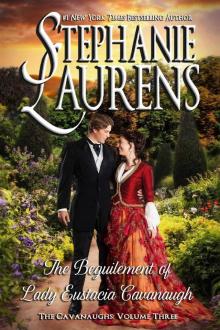 The Beguilement of Lady Eustacia Cavanagh: The Cavanaughs Volume 3
The Beguilement of Lady Eustacia Cavanagh: The Cavanaughs Volume 3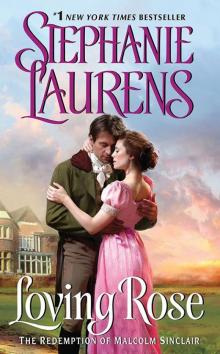 Loving Rose: The Redemption of Malcolm Sinclair (Casebook of Barnaby Adair)
Loving Rose: The Redemption of Malcolm Sinclair (Casebook of Barnaby Adair)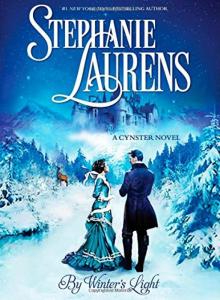 By Winter's Light
By Winter's Light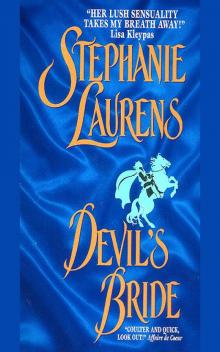 Devil's Bride
Devil's Bride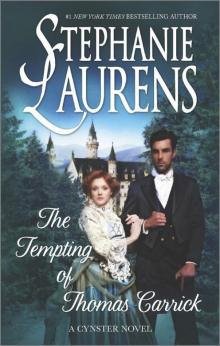 The Tempting of Thomas Carrick
The Tempting of Thomas Carrick![Cynster [22.00] A Match for Marcus Cynster Read online](http://i1.bookreadfree.com/i/03/16/cynster_[22_00]_a_match_for_marcus_cynster_preview.jpg) Cynster [22.00] A Match for Marcus Cynster
Cynster [22.00] A Match for Marcus Cynster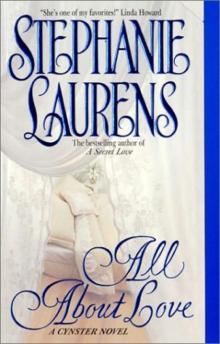 All About Love c-6
All About Love c-6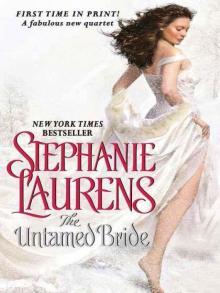 Cobra 01 The Untamed Bride
Cobra 01 The Untamed Bride A Lady of Expectations and Other Stories
A Lady of Expectations and Other Stories By Winter's Light_A Cynster Novel
By Winter's Light_A Cynster Novel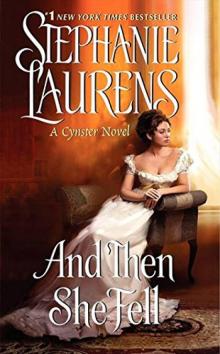 And Then She Fell
And Then She Fell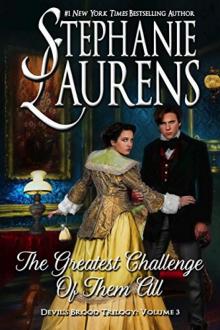 The Greatest Challenge of Them All
The Greatest Challenge of Them All The Edge of Desire
The Edge of Desire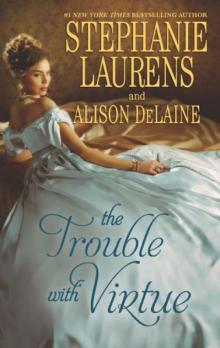 The Trouble With Virtue: A Comfortable WifeA Lady by Day
The Trouble With Virtue: A Comfortable WifeA Lady by Day Fair Juno
Fair Juno THE LEGEND OF NIMWAY HALL: 1750 - JACQUELINE
THE LEGEND OF NIMWAY HALL: 1750 - JACQUELINE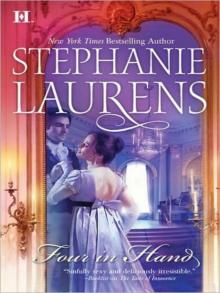 Four In Hand
Four In Hand The Reckless Bride
The Reckless Bride Stephanie Laurens Rogues' Reform Bundle
Stephanie Laurens Rogues' Reform Bundle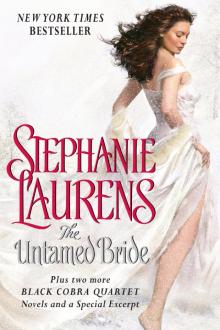 The Untamed Bride Plus Black Cobra 02-03 and Special Excerpt
The Untamed Bride Plus Black Cobra 02-03 and Special Excerpt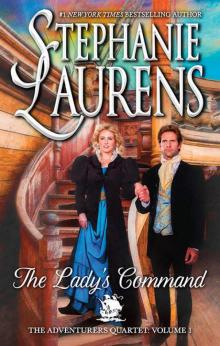 The Lady's Command (Adventurers Quartet #1)
The Lady's Command (Adventurers Quartet #1) The Seduction of Sebastian Trantor
The Seduction of Sebastian Trantor The Daredevil Snared (The Adventurers Quartet Book 3)
The Daredevil Snared (The Adventurers Quartet Book 3)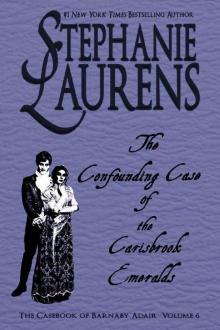 The Confounding Case Of The Carisbrook Emeralds (The Casebook of Barnaby Adair 6)
The Confounding Case Of The Carisbrook Emeralds (The Casebook of Barnaby Adair 6) Lord of the Privateers (The Adventurers Quartet)
Lord of the Privateers (The Adventurers Quartet)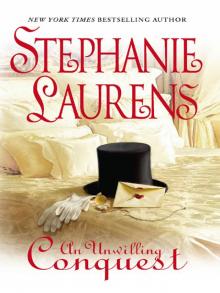 An Unwilling Conquest
An Unwilling Conquest Brazen Bride
Brazen Bride On a Wild Night
On a Wild Night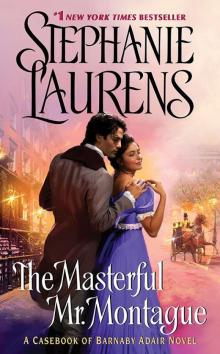 The Masterful Mr. Montague: A Casebook of Barnaby Adair Novel
The Masterful Mr. Montague: A Casebook of Barnaby Adair Novel Lord of the Privateers
Lord of the Privateers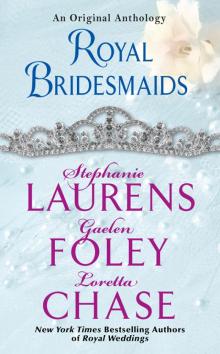 Royal Bridesmaids
Royal Bridesmaids Beyond Seduction
Beyond Seduction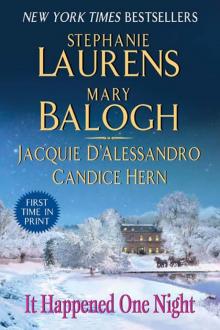 It Happened One Night
It Happened One Night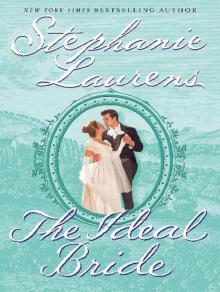 The Ideal Bride
The Ideal Bride The Promise in a Kiss
The Promise in a Kiss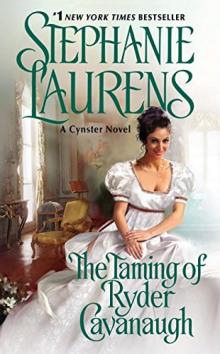 The Taming of Ryder Cavanaugh
The Taming of Ryder Cavanaugh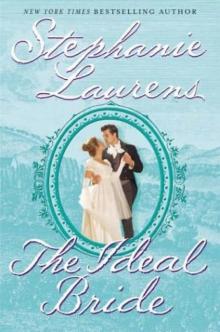 The Ideal Bride c-12
The Ideal Bride c-12 All About Love
All About Love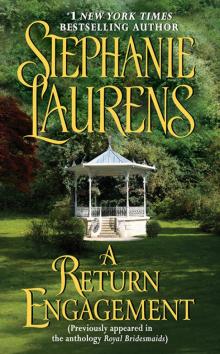 A Return Engagement
A Return Engagement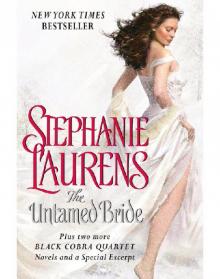 The Untamed Bride Plus Two Full Novels and Bonus Material
The Untamed Bride Plus Two Full Novels and Bonus Material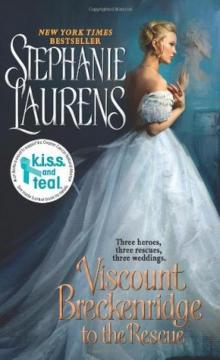 Viscount Breckenridge to the Rescue
Viscount Breckenridge to the Rescue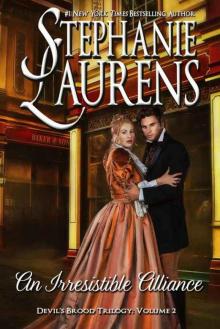 An Irresistible Alliance (Cynsters Next Generation Novels Book 5)
An Irresistible Alliance (Cynsters Next Generation Novels Book 5) The Daredevil Snared
The Daredevil Snared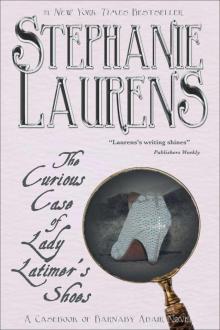 The Curious Case of Lady Latimer's Shoes: A Casebook of Barnaby Adair Novel
The Curious Case of Lady Latimer's Shoes: A Casebook of Barnaby Adair Novel A Lady of Expectations and Other Stories: A Lady of ExpectationsThe Secrets of a CourtesanHow to Woo a Spinster
A Lady of Expectations and Other Stories: A Lady of ExpectationsThe Secrets of a CourtesanHow to Woo a Spinster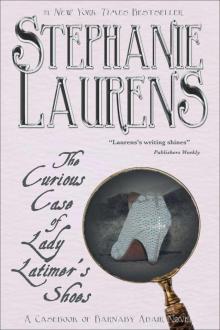 The Curious Case of Lady Latimer's Shoes: A Casebook of Barnaby Adair Novel (The Casebook of Barnaby Adair)
The Curious Case of Lady Latimer's Shoes: A Casebook of Barnaby Adair Novel (The Casebook of Barnaby Adair)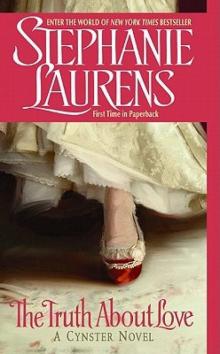 The Truth About Love
The Truth About Love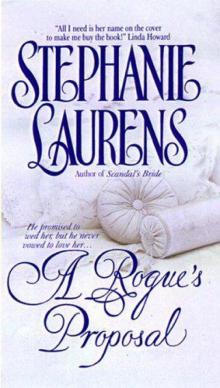 A Rogue's Proposal
A Rogue's Proposal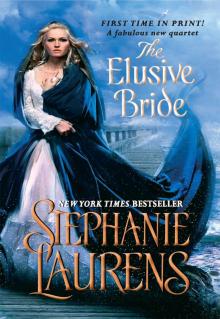 The Elusive Bride
The Elusive Bride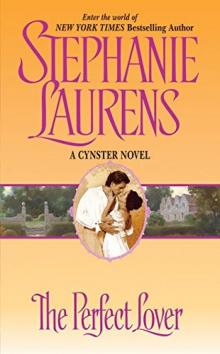 The Perfect Lover
The Perfect Lover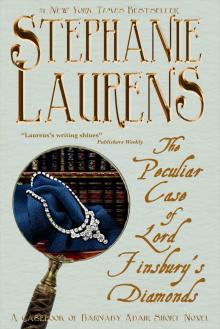 The Peculiar Case of Lord Finsbury's Diamonds: A Casebook of Barnaby Adair Short Novel
The Peculiar Case of Lord Finsbury's Diamonds: A Casebook of Barnaby Adair Short Novel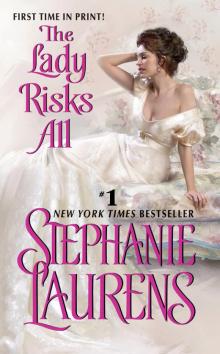 The Lady Risks All
The Lady Risks All The Murder at Mandeville Hall: The Casebook of Barnaby Adair: Volume 7
The Murder at Mandeville Hall: The Casebook of Barnaby Adair: Volume 7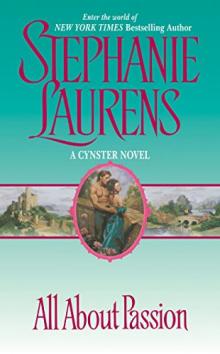 All About Passion
All About Passion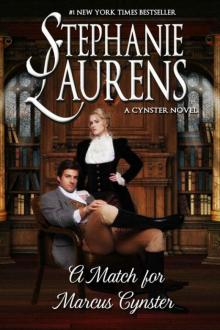 A Match for Marcus Cynster
A Match for Marcus Cynster By Winter's Light: A Cynster Novel (Cynster Special Book 2)
By Winter's Light: A Cynster Novel (Cynster Special Book 2)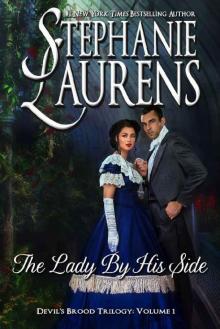 The Lady By His Side
The Lady By His Side The Pursuits of Lord Kit Cavanaugh
The Pursuits of Lord Kit Cavanaugh Tangled Reins
Tangled Reins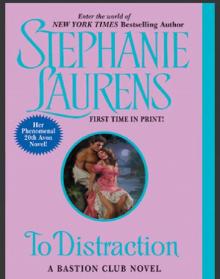 To Distraction
To Distraction A Rake's Vow
A Rake's Vow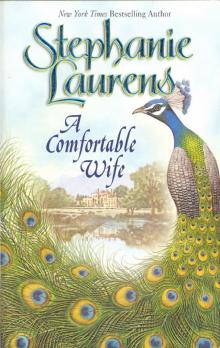 A Comfortable Wife
A Comfortable Wife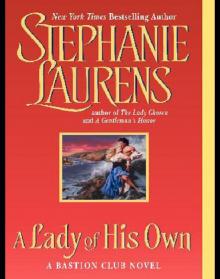 A Lady of His Own bc-3
A Lady of His Own bc-3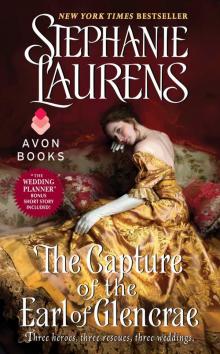 The Capture of the Earl of Glencrae
The Capture of the Earl of Glencrae Scandals Bride c-3
Scandals Bride c-3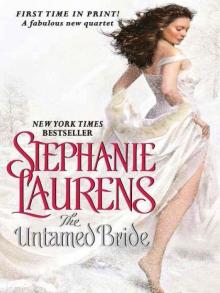 Untamed Bride
Untamed Bride The Brazen Bride
The Brazen Bride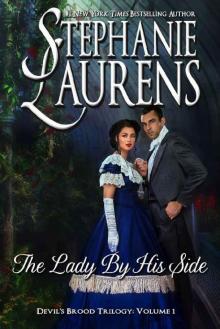 The Lady By His Side (Cynsters Next Generation Novels Book 4)
The Lady By His Side (Cynsters Next Generation Novels Book 4)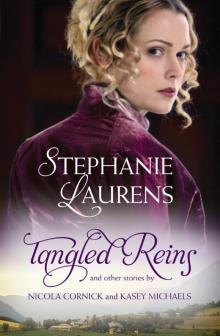 Tangled Reins and Other Stories
Tangled Reins and Other Stories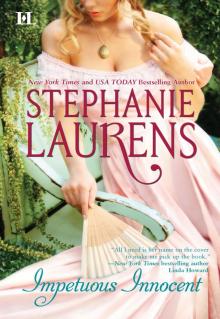 Impetuous Innocent
Impetuous Innocent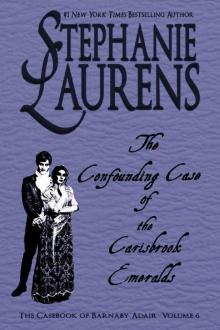 The Confounding Case Of The Carisbrook Emeralds
The Confounding Case Of The Carisbrook Emeralds Stephanie Laurens - B 6 Beyond Seduction
Stephanie Laurens - B 6 Beyond Seduction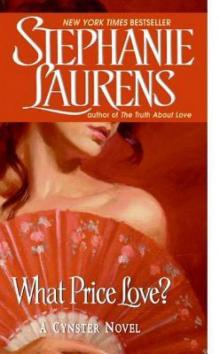 What Price Love?
What Price Love? A Fine Passion
A Fine Passion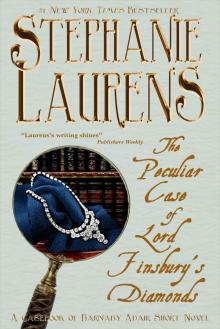 The Peculiar Case of Lord Finsbury's Diamonds: A Casebook of Barnaby Adair Short Novel (The Casebook of Barnaby Adair)
The Peculiar Case of Lord Finsbury's Diamonds: A Casebook of Barnaby Adair Short Novel (The Casebook of Barnaby Adair) Where the Heart Leads
Where the Heart Leads The Designs of Lord Randolph Cavanaugh
The Designs of Lord Randolph Cavanaugh A Secret Love c-5
A Secret Love c-5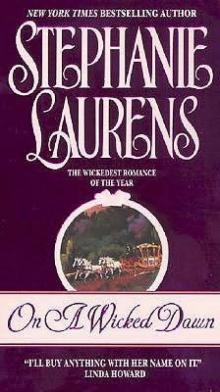 On a Wicked Dawn c-10
On a Wicked Dawn c-10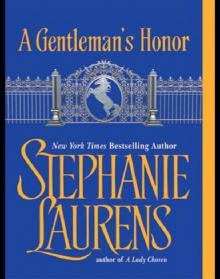 A Gentleman's Honor
A Gentleman's Honor THE LEGEND OF NIMWAY HALL_1750_JACQUELINE
THE LEGEND OF NIMWAY HALL_1750_JACQUELINE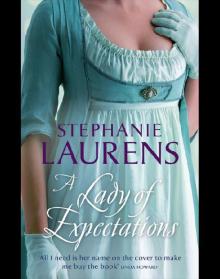 A Lady of Expectations
A Lady of Expectations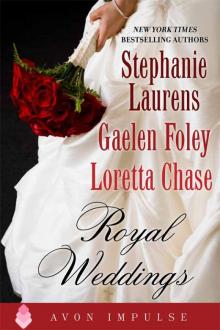 Royal Weddings: An Original Anthology
Royal Weddings: An Original Anthology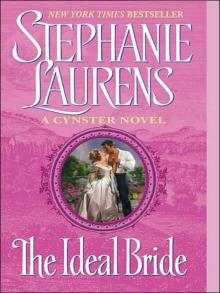 The Ideal Bride (Cynster Novels)
The Ideal Bride (Cynster Novels) Mastered by Love
Mastered by Love A Buccaneer at Heart
A Buccaneer at Heart Captain Jack’s Woman / A Gentleman's Honor
Captain Jack’s Woman / A Gentleman's Honor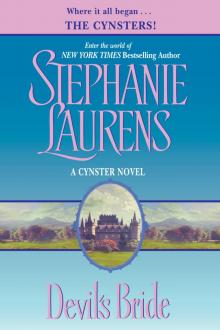 Devil's Bride with Bonus Material
Devil's Bride with Bonus Material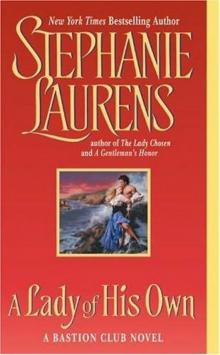 A Lady of His Own
A Lady of His Own A Secret Love
A Secret Love Melting Ice
Melting Ice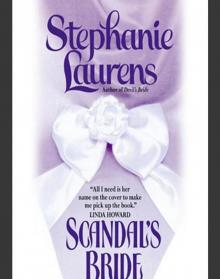 Scandal's Bride
Scandal's Bride Lady Osbaldestone’s Christmas Goose
Lady Osbaldestone’s Christmas Goose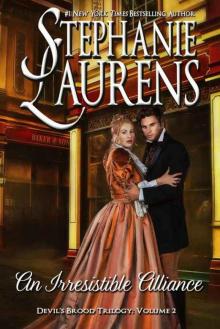 An Irresistible Alliance
An Irresistible Alliance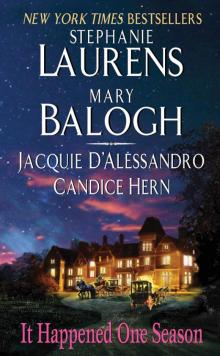 It Happened One Season
It Happened One Season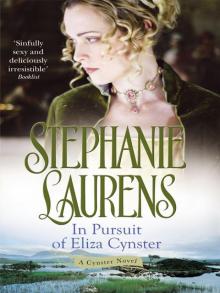 In Pursuit Of Eliza Cynster
In Pursuit Of Eliza Cynster Captain Jack's Woman
Captain Jack's Woman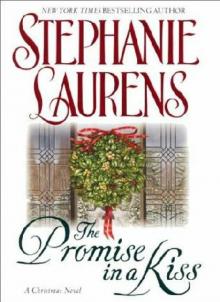 The promise in a kiss c-8
The promise in a kiss c-8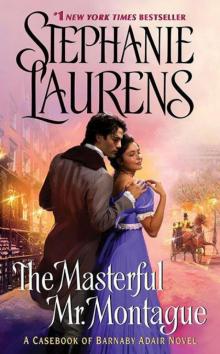 The Masterful Mr. Montague
The Masterful Mr. Montague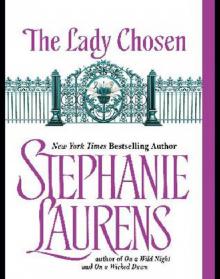 The Lady Chosen
The Lady Chosen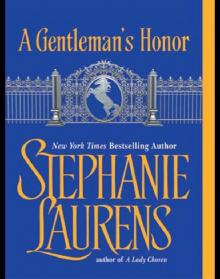 A Gentleman's Honor bc-2
A Gentleman's Honor bc-2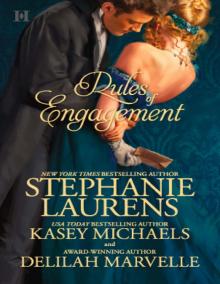 Rules of Engagement: The Reasons for MarriageThe Wedding PartyUnlaced (Lester Family)
Rules of Engagement: The Reasons for MarriageThe Wedding PartyUnlaced (Lester Family) Secrets of a Perfect Night
Secrets of a Perfect Night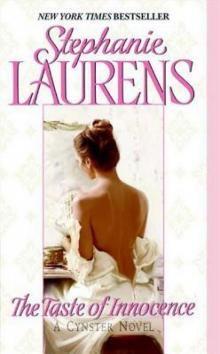 The Taste of Innocence
The Taste of Innocence On A Wicked Dawn
On A Wicked Dawn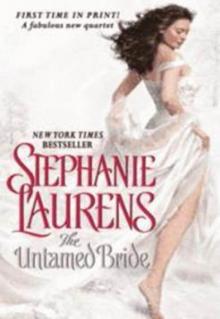 The Untamed Bride
The Untamed Bride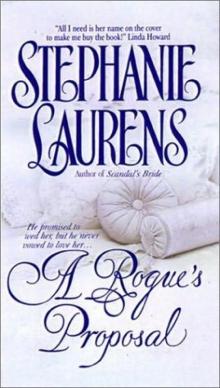 A Rogues Proposal c-4
A Rogues Proposal c-4 Rakes Vow c-2
Rakes Vow c-2 Devils Bride c-1
Devils Bride c-1 Hero, Come Back
Hero, Come Back On a Wild Night c-8
On a Wild Night c-8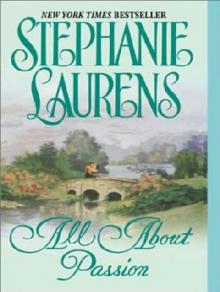 All About Passion c-7
All About Passion c-7